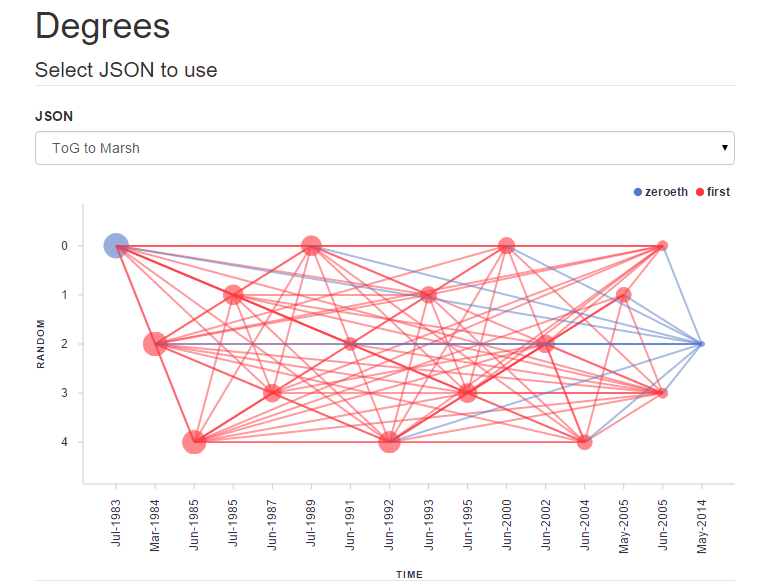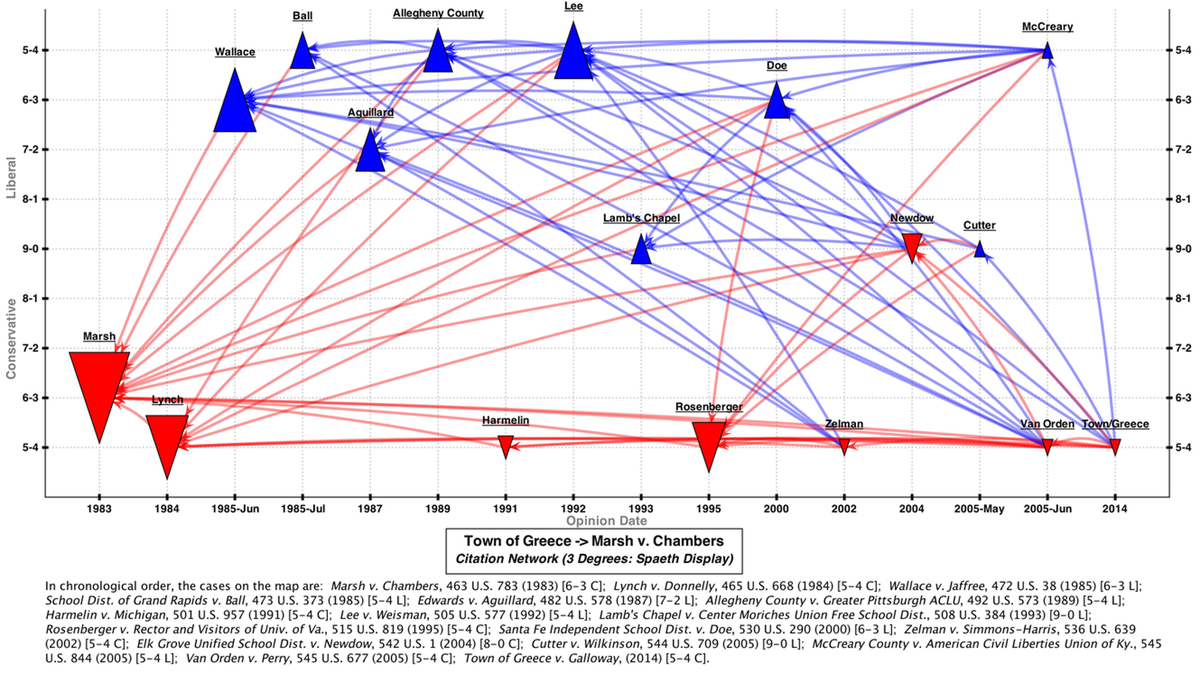Free Law Project and University of Baltimore to Collaborate to Create Supreme Court Doctrinal Maps

An early prototype of the new version.
Free Law Project is excited to announce that over the next several months we will be collaborating with the University of Baltimore and Assistant Professor of Law, Colin Starger, to build a web-based version of his Supreme Court Mapping Project, a software-driven effort to visualize Supreme Court doctrine. Currently a desktop software tool, the collaboration will move this functionality to the web, incorporating it directly into Free Law Project's CourtListener platform.
Once incorporated into CourtListener, users will be able to create visualizations of how different cases cite each other, including plotting them against variables from the Supreme Court Database such as whether the case had a liberal or conservative outcome, and the minority/majority votes of the justices. Using the CourtListener citation API, Colin and his partner Darren Kumasawa have done a lot of work in this area already, laying a great foundation for this project.
 The current design
The current design
We hope that within a few months our new service will go live, and that teachers, librarians, and researchers will be able to create great new visualizations of Supreme Court doctrine. If you've been watching Colin and Darren's work over on the Supreme Court Mapping Project's blog, and are interested in getting involved as an early tester of this new platform, be sure to get in touch. As an explicitly social project, we need early testers to help us prove that our assumptions are good and to bring more great ideas to the table.
You can read more about this project in the Supreme Court Mapping Project's announcement.


